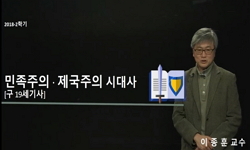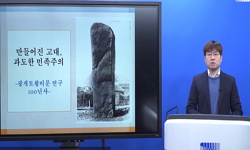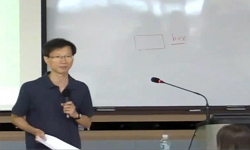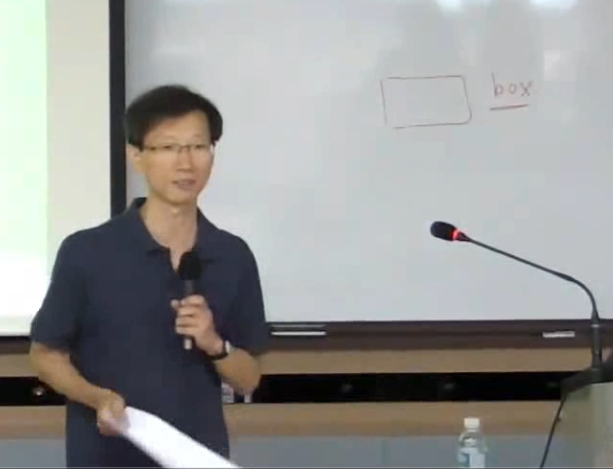1990년대 공산화 이전 시장 경제와 의회민주주의 정치의 경험이 풍부했던 중부 유럽 국가들의 공산당들은 사회민주주의적 정당으로의 변신에 일정정도 성공함으로써, 역사적 사회민주주의 ...
http://chineseinput.net/에서 pinyin(병음)방식으로 중국어를 변환할 수 있습니다.
변환된 중국어를 복사하여 사용하시면 됩니다.
- 中文 을 입력하시려면 zhongwen을 입력하시고 space를누르시면됩니다.
- 北京 을 입력하시려면 beijing을 입력하시고 space를 누르시면 됩니다.
https://www.riss.kr/link?id=A99749175
- 저자
- 발행기관
- 학술지명
- 권호사항
-
발행연도
2013
-
작성언어
Korean
- 주제어
-
등재정보
KCI등재
-
자료형태
학술저널
- 발행기관 URL
-
수록면
134-169(36쪽)
-
KCI 피인용횟수
2
- 제공처
- 소장기관
-
0
상세조회 -
0
다운로드
부가정보
국문 초록 (Abstract)
1990년대 공산화 이전 시장 경제와 의회민주주의 정치의 경험이 풍부했던 중부 유럽 국가들의 공산당들은 사회민주주의적 정당으로의 변신에 일정정도 성공함으로써, 역사적 사회민주주의 정당과의 경쟁에서 승리하고, 국가사회주의 체제의 붕괴를 주도한 자유주의 우파의 집권 기간 동안의 신자유주의적 체제전환 정책에 대한 대안 세력으로 거듭나면서, 체제 전환 이후 불과 수년도 지나지 않아 집권에 성공하기도 하였다. 반면, 공산화 이전 산업화와 민주 정치의 경험이 적었던 발칸 반도의 국가들에서는 역사적 사회민주주의 세력들은 매우 미약하거나 이행 국면에서 반공산주의적 자유주의-민족주의 진영에 합류하는 등 영향력 확대에 실패하면서 스스로 약화의 길을 자초하였고, 공산주의 후계정당들은 공공연한 사회민주당으로의 변신 선언과는 달리, 국가마다 다양한 상황 변화를 맞으면서 당내 보수적-민족주의적 분파가 주도권을 장악하여 구래의 현실 사회주의식(후견주의식) 사회경제정책을 유지하거나, 반민주적이고 민족주의 정당과 구별되지 않는 정당으로 변질되기도 한다.
이러한 탈사회주의 동유럽 국가들에서의 사회민주주의 세력들의 다양한 분화, 발전 과정과 그 한계는 근본적으로는 공산화 이전의 민주주의 정치와 시장경제의 경험의 유무, 공산화의 자발성 여부와 기간, 그리고 지역별 역사적, 종교적, 문화적 전통의 차이 등에 기인한다고 할 수 있다. 그러나 이러한 원인들과 더불어 간과하지 말아야 할 것은 이러한 차이와 분화는 신자유주의 세계화 과정 속에서 중심부 국가와 자본의 이해와 필요에 따라 선택적으로 세계자본주의 체제 속으로 편입되는 과정에서 강제된 결과이기도 하다는 것이다. 본 논문에서는 이러한 한계를 극복하고자 사회민주주의 세력의 분화를 역사적, 문화적 지리적 차원에서뿐 아니라, 세계자본주의 체제 속에서 파악하여, 특히 신자유주의 세계화 속에서 서구 국가와 자본의 분업 전략에 따른 이 지역 국민들의 다양한 적응과 저항의 기제가 사회민주주의 정치세력의 분화와 변질의 중요한 토대임을 밝혀내고자 한다.
다국어 초록 (Multilingual Abstract)
With the rise of globalization and the diffusion of neoliberal economic reform throughout the world, the relevance of partisanship for economic reform has become the subject of much controversy. After the fall of socialist system, countries in Central...
With the rise of globalization and the diffusion of neoliberal economic reform throughout the world, the relevance of partisanship for economic reform has become the subject of much controversy. After the fall of socialist system, countries in Central and Eastern Europe faced global economic pressures, but, they simultaneously needed to construct a market economy. In this situation, the social democratic parties in the region worked out cognate strategies of deciding the tasks in countries, where inhere beside the authorities or form a powerful opposition, combining the measures of market economy and of raising a cost-performance with the active social policy.
In this context, author insists that the history of revival and prospects of parties of social-democratic orientation in the region is deeply related to the historical roots of dependences and the economic marginalization enforced by the core of capitalism in the West in the era of neoliberal globalization. Undoubtedly, it was found that historical and cultural factors were related to the emergence of post-communist-nationalist political cooperation or post-communist leftist-neoliberal combination. It, however, also has to be considered that the external power has played amount role in setting and enforcing political agendas for the states of the region and influenced domestic political outcomes. The present economic relations between Central and Southeastern Europe and the West are still patron-clientele or core-periphery relations.
In Southeastern European countries, the patrimonial communist regimes produced communist successor parties which emerged as conglomerate parties with a very weak social democratic component, largely because the social democrats began in a very weak position. In Central Europe, however, communist successor parties were provided with organizational resources and a pool of political talents which enabled them to quickly adopt characteristics akin to a modern West European social democratic parties. Insofar as former communist regime parties reformed and adopted a social democratic platform, they won easy victories over historical social democratic parties. In this context, author analyses the criterion of typology of social-democratic parties in the region, the history of revival of these parties and the programs and some results of social democratic parties. The external factor forced post-communist countries to be integrated selectively into the world-capitalist system and make the social democratic parties become quite different. whatever the case, the support of statism, socialism, nationalism and (neo)liberalism mixed in together is likely to remain an important part of post-communist politics in the region.
목차 (Table of Contents)
- 1. 서론
- 2. 중부 및 동남부 유럽의 세계자본주의 체제로의 재편과 정치사회의 변화
- 3. 중부 및 동남부 유럽 국가 사회민주주의적 정치세력들의 변화와 분화
- 4. 결론과 전망
- 참고문헌
- 1. 서론
- 2. 중부 및 동남부 유럽의 세계자본주의 체제로의 재편과 정치사회의 변화
- 3. 중부 및 동남부 유럽 국가 사회민주주의적 정치세력들의 변화와 분화
- 4. 결론과 전망
- 참고문헌
- Abstract
참고문헌 (Reference)
1 Polityka,
2 KOMPAS,
3 Ganev. V. I, "“The triumph of neoliberalism.” reconsidered: critical remarks on ideas-centered analyses of political and economic change in post-communism" 19 (19): 348-378, 2005
4 Bitkova, T. G., "‘Levye’ v postkommunisticheskoi Rumynii // Partii i dvijheniya Zapadnoi i Vostochnoi Evropy : Teoriya i praktika" 1997
5 Sloam. J, "West European social democracy as a model for transfer" 21 (21): 67-83, 2005
6 Jowit. K, "Weber, Trotsky and Holmes on the study of Leninist regimes" 45 (45): 31-49, 1991
7 World Bank, "Understanding poverty in Poland" World Bank 1995
8 Yajheborovskaya M. S., "Tsentral’no-Vostochnaya Evropa: Povorot vlevo?" 8 : 1996
9 Rustow. D. A, "Transitions to democracy: Toward a dynamic model" 2 (2): 337-363, 1970
10 O’Donell. G., "Transitions from authoritarian rule: tentative conclusions about uncertain democracies" The Johns Hopkins Univ. Press 1986
1 Polityka,
2 KOMPAS,
3 Ganev. V. I, "“The triumph of neoliberalism.” reconsidered: critical remarks on ideas-centered analyses of political and economic change in post-communism" 19 (19): 348-378, 2005
4 Bitkova, T. G., "‘Levye’ v postkommunisticheskoi Rumynii // Partii i dvijheniya Zapadnoi i Vostochnoi Evropy : Teoriya i praktika" 1997
5 Sloam. J, "West European social democracy as a model for transfer" 21 (21): 67-83, 2005
6 Jowit. K, "Weber, Trotsky and Holmes on the study of Leninist regimes" 45 (45): 31-49, 1991
7 World Bank, "Understanding poverty in Poland" World Bank 1995
8 Yajheborovskaya M. S., "Tsentral’no-Vostochnaya Evropa: Povorot vlevo?" 8 : 1996
9 Rustow. D. A, "Transitions to democracy: Toward a dynamic model" 2 (2): 337-363, 1970
10 O’Donell. G., "Transitions from authoritarian rule: tentative conclusions about uncertain democracies" The Johns Hopkins Univ. Press 1986
11 Mosher Ch. A., "Theory and history of the Bulgarian transition" 1994
12 Lewis. P, "Theories of democratization and patterns of regime change in Eastern Europe" 13 (13): 4-26, 1997
13 Bunce. V, "The national idea: imperial legacies and post-communist pathways in Eastern Europe" 19 (19): 406-442, 2005
14 Gill. G., "The collapse of a single party system" Cambridge Univ. press 1994
15 Hein. W., "The capitalist state and underdevelopment in Latin America: the case of Venezuela" 92-116, 1979
16 Orttung. R, "The Russian right and the dilemmas of party organization" 44 (44): 445-478, 2000
17 Bunce. V, "The Political economy of postsocialism" 58 (58): 756-758, 1999
18 Ishiyama. J, "Strange bedfellows: explaining political cooperation between communist successor parties and nationalists in Eastern Europe" 4 (4): 61-85, 1998
19 Hamilton. N, "State autonomy and dependent capitalism" 32 (32): 305-329, 1981
20 Zadorojhnyuk. E. G., "Sotsial-demokratiya v Tsentral’noi Evrope. Academia" 2000
21 Waller. M., "Social democracy in a post-communist Europe" F. Cass 1994
22 Sandbrook. R., "Social Democracy in the global periphery" Cambridge University Press 2007
23 Bunce. V., "Should transitologists be grounded?”" 54 (54): 124-, 1995
24 Stark, D., "Postsocialist Pathways: Transforming politics and property in East Central Europe" Cambridge Univ. Press 1998
25 Kitschelt. H., "Post-communist party systems: competition, representation, and inner-party cooperation" Cambridge Univ. Press 1997
26 Lykoshna L. S., "Polskaya Sotsial-demokratsiya i sud’ba levitsy v nachale 90-x godov. Obzor // Sotsial-demokraty v Vostochnoi Evrope"
27 Gus’kova E. Yu, "Politicheskii landshft Novoi Yugoslavii" 1996
28 Welsh. H, "Political transition processes in Central and Eastern Europe" 26 (26): 379-391, 1994
29 Markowski. R, "Political parties and ideological spaces in East Central Europe" 30 (30): 221-254, 1997
30 Wiatr J., "Pet let po prelomu" 6 : 1994
31 Kornai. J, "Paying the Bill for Goulash Communism: Hungarian Development and macro stabilization in a political-economy perspective" 63 (63): 943-1040, 1996
32 Attila. A, "Partial Consolidation of the East-Central European Parties: The Case of the Hungarian Socialist Party" 1 (1): 491-514, 1995
33 Bohle. D., "Neoliberalism, embedded neoliberalism and neocorporatism: Towards transnational capitalism in Central-Eastern Europe" 30 (30): 443-466, 2007
34 Petras. J., "Multinationals on trial : Foreign investment matters" Ashgate publishing company 2007
35 Pipes. R., "Introduction: the nationality problem, In The handbook of major Soviet nationalities" Free Press 1975
36 World Bank, "Hungary: Poverty and social transfers" World Bank 1996
37 Ishiyama. J, "Historical legacies and the size of the red-brown vote in post-communist politics" 42 : 485-504, 2009
38 Swain. A., "Globalization, institutions, foreign investment and the reintegration of East and the Former Soviet Union with the World Economy" 32 (32): 587-590, 1998
39 Gevasi. S., "Germany, US and the Yugoslav crisis" 43 : 1992
40 Vujacic. V, "From class to nation: Left, right, and the ideological and institutional roots of post-communist ‘National Socialism’" 17 (17): 359-392, 2003
41 Janos. A. C, "From Eastern empire to Western hegemony: East-Central Europe under two international regimes" 15 (15): 221-249, 2001
42 Gus’kova E. Yu., "Formiovaniye sotsial demokraticheskikh partii v Yugoslavii // Sotsial-demokraty v Vostochnoi Evrope" 1992
43 Kitschelt. H, "Formation of party cleavages in post-communist democracies: theoretical propositions" 1 (1): 447-472, 1995
44 Crowley. S, "Explaining labor weakness in post-communist Europe: Historical legacies and comparative perspective" 18 (18): 394-429, 2004
45 Ishiyama. J, "Europeanization and the communist successor parties i post-communist politics" 1 (1): 3-29, 2006
46 Petras. J., "Empire with imperialism: The globalising dynamics of neo-liberal capitalism" Fernwood publishing 2005
47 Potter. D., "Democracy in Asi, In Prospects for democracy: North, South, East, West" Polity 1993
48 Kuzio. T, "Comparative perspectives on Communist successor parties in Central-Eastern Europe and Eurasia" 41 : 397-419, 2008
49 Tzelov. E., "Communist successor parties and government survival in Central European Europe" 50 : 530-558, 2011
50 Szporluk. R., "Communism and nationalism: Karl Marx versus Friedrich List" Oxford Univ. Press 1988
51 UNICEF, "Children at Risk in Central And Eastern Europe: Perils and promise" UNICEF 1997
52 Scherbakova Yu. A, "Chekhoslovatskaya sotsial-demokratsicheskaya partiya // Sotsial-demokraty v Vostochnoi Evrope" 1992
53 Kaser. K, "Central and Southeast European politics since 1989" 91-110, 2010
54 Offe. C, "Capitalism by democratic design? Democratic theory facing the triple transition in East Central Europe" 58 (58): 865-892, 1991
55 Pul’sy planety, "CE-56, 19 May. CE-15,16"
56 Jakowicz J., "Bulgaria. Warszawa. Kratkaya istoriya Chekhoslovakii s drevneishikh vremen do nashikh dnei. 1998. M" 1998
57 Zudinov. Yu. F, "Bolgariya: politicheskiye metamorfozy pervogo posttotalitatnogo pyatiletiya // Sotsial-demokraty v Vostochnoi Evrope" 1992
58 Hejthy. L, "Autonomy of a Tripartie Experiment: Attempted social and economic agreement in Hungary" 134 (134): 361-376, 1995
59 Vachudova. M. A., "Are transitions transitory? Two types of political change in Eastern Europe since 1989" 11 (11): 1-35, 1997
60 Lee A. S, "After the party, the after-parties? The effects of communist successor parties on economic reform in Central and Eastern Europe" 63 (63): 1697-1718, 2011
61 Orenstein. M., "A genealogy of communist successor parties in East-Central Europe and the determinants of their success" 12 (12): 1998
동일학술지(권/호) 다른 논문
-
- 비판사회학회
- 최현(Choe, Hyun)
- 2013
- KCI등재
-
밀양 고압 송전선로 건설 갈등에 대한 일간지 보도 분석
- 비판사회학회
- 이화연(Hwa-Yeon LEE)
- 2013
- KCI등재
-
삼척시 원전 유치 도시 레짐을 둘러싼 반핵운동의 대응과 환경정의
- 비판사회학회
- 한상진(Sang-Jin Hahn)
- 2013
- KCI등재
-
- 비판사회학회
- 이영희(Young-Hee Lee)
- 2013
- KCI등재
분석정보
인용정보 인용지수 설명보기
학술지 이력
| 연월일 | 이력구분 | 이력상세 | 등재구분 |
|---|---|---|---|
| 2022 | 평가예정 | 계속평가 신청대상 (등재유지) | |
| 2017-01-01 | 평가 | 우수등재학술지 선정 (계속평가) | |
| 2013-01-01 | 평가 | 등재학술지 유지 (등재유지) |  |
| 2010-01-01 | 평가 | 등재학술지 유지 (등재유지) |  |
| 2008-05-07 | 학회명변경 | 한글명 : 한국산업사회학회 -> 비판사회학회영문명 : The Association Of Korean Researchers On Industrial Society -> Korean Critical Sociological Association |  |
| 2008-01-01 | 평가 | 등재학술지 유지 (등재유지) |  |
| 2006-01-01 | 평가 | 등재학술지 유지 (등재유지) |  |
| 2003-01-01 | 평가 | 등재학술지 선정 (등재후보2차) |  |
| 2002-01-01 | 평가 | 등재후보 1차 PASS (등재후보1차) |  |
| 1999-01-01 | 평가 | 등재후보학술지 선정 (신규평가) |  |
학술지 인용정보
| 기준연도 | WOS-KCI 통합IF(2년) | KCIF(2년) | KCIF(3년) |
|---|---|---|---|
| 2016 | 1.37 | 1.37 | 1.34 |
| KCIF(4년) | KCIF(5년) | 중심성지수(3년) | 즉시성지수 |
| 1.48 | 1.56 | 1.768 | 0.46 |




 DBpia
DBpia







